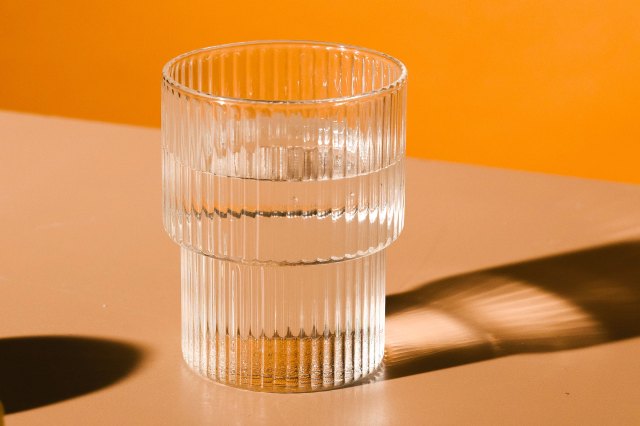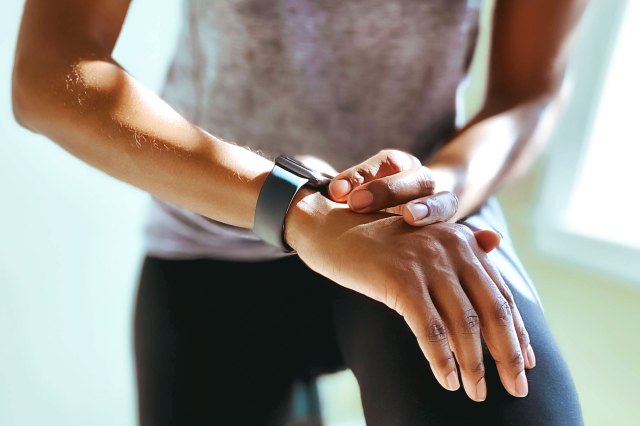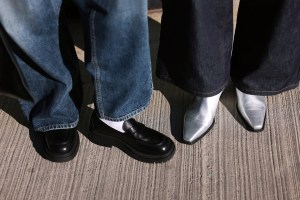The world of health and wellness is full of ideas that have been repeated so often, they’ve been accepted as fact. Perhaps you’ve heard how important it is to drink eight glasses of water every day, or how cracking your knuckles causes arthritis. But when it comes to the body, it’s important to dive deeper into the science behind staying healthy. What might be considered accepted wisdom today could become outdated tomorrow, if new evidence comes to light. Here’s a look at some of the more fabled health and wellness tips that continue to be repeated, even though recent research points to different advice.

Myth: Breakfast Is the Most Important Meal of the Day
In 19th-century America, breakfast wasn’t particularly popular until a group of religious lobbyists convinced the country otherwise. In particular, the founder of Kellogg’s promoted plain corn flakes as a way to fight back against sinful thought, and eventually the lobbyists succeeded in their efforts to promote specific breakfast foods (cereal, eggs, cured meats, and orange juice, for example) to the masses. In truth, research does suggest that eating a meal in the morning can enhance mood and overall nutrition, but there’s less conclusive data on the health benefits of breakfast over other meals. And we can definitely debunk the myth that only specific foods are considered “breakfast foods.” If you feel like eating leftovers from last night for breakfast, go ahead. The important thing is to consume an overall nutritious diet throughout the day, starting with your first meal.

Myth: A Low BMI Means You’re Healthy
Body mass index (BMI) has long been used as a predictor of someone’s overall health, but the science doesn’t necessarily support that practice. BMI was developed by statisticians to better understand the distribution of weight populations, and during their process of fine-tuning it into a bell curve, millions of people went from “overweight” to “obese” overnight.
The tool was adopted by the health care industry for its simplicity, but that simplicity is also why it’s so flawed as a measure of health. For one thing, BMI only accounts for height and weight and doesn’t distinguish between fat and muscle mass. Someone with a lot of the latter might have a high BMI and be considered “obese,” even if they have very little actual fat. Furthermore, health isn’t just about weight and fat distribution — it’s also about genetics, gender, age, and countless other factors that can’t be measured or contained by a single number.
Finally, people with a BMI considered underweight face their own health risks, including osteoporosis, fertility issues, and anemia. It’s important to push back against the outdated belief that any one body type is somehow more inherently healthy than others.

Myth: Cracking Your Knuckles Causes Arthritis
Cracking your knuckles has nothing to do with developing arthritis. The “pop” sound when you crack your knuckles is the bursting of synovial fluid that surrounds the joints and keeps them lubricated. This fluid has no direct correlation with arthritis, which is caused by wear and tear of the joints through use over time. That said, cracking your knuckles may cause adverse effects on your grip strength if you do it often.

Myth: You Shouldn't Eat Right Before Bed
This myth likely comes from the idea that your body won’t burn calories while you sleep (which isn’t true). However, the real concern is not when you eat, but how much and what quality of food you consume throughout the day. Recent studies suggest that small, nutrient-dense meals in the evening can contribute to weight loss, as this keeps the body’s metabolism running. However, you may want to avoid mindlessly snacking on chips or grabbing a sweet treat before bed. While timing doesn’t impact how your body processes calories overall, studies show those evening snacks tend to increase daily total calorie counts.

Myth: You Need To Walk 10,000 Steps Daily
Walking 10,000 steps daily is a nice round number, but it’s likely the result of a 1964 advertising campaign for a new pedometer. In terms of the science, the need to walk 10,000 steps daily has been mostly debunked. It takes far fewer steps to see notable health benefits: Risk of cardiovascular disease drops by around 11% when people walk just 2,500 steps daily. Walking 7,000 steps produces even greater benefits, reducing risk of cardiovascular disease by 51%. Aiming for 10,000 steps isn’t a bad thing, of course, but it’s not the critical benchmark we once thought it was.

Myth: Carbohydrates Are Bad
It’s not just that carbohydrates aren’t bad — they can actually be a healthy part of a balanced diet. Carbs are broken down into glucose, which provides necessary energy for the body to function. Unless you have specific dietary needs, a healthy adult diet should contain about 45% to 65% carbohydrates. There are two types: simple carbs (candy, soda, pasta, white rice, etc.) and complex carbs (fruit, starchy vegetables, whole grains). Many nutritionists suggest reducing your intake of simple carbs, which often have way more sugar than fiber, and instead focusing on incorporating more complex carbs into your diet. That’s not to say you can never have another pastry or get an ice cream cone, but be conscious of tipping that balance in favor of whole grains, fruits, and veggies.

Myth: Everyone Needs Eight Glasses of Water a Day
There’s a reason everyone wants to carry around their favorite water tumbler, and that’s because hydration is one of the most important aspects of feeling and looking your best. However, the blanket guideline of eight glasses (64 ounces) of water a day doesn’t take into account the many factors that can affect hydration. For example, people who work out and sweat a lot need to consume more water than those who don’t, and the same goes for people who are pregnant or breastfeeding.
Recent recommendations from the U.S National Academies of Sciences, Engineering, and Medicine suggest adults need 92 to 124 ounces of water daily — but that includes water from sources such as food and other beverages. That recommendation also doesn’t account for factors that might affect individual hydration needs. For some people, that amount might be too much — water intoxication is a real and very serious risk. Ultimately, it’s best not to fixate on a specific number and instead listen to your body: If you’re thirsty, drink some water.

Myth: Exercise Is All You Need To Lose Weight
You can pump iron and run for hours on a treadmill, but you likely won’t see your weight change much if you don’t pay attention to what you’re putting into your body. Studies show that reducing calories alone, or exercising without changing your diet, won’t impact weight loss as much as employing both strategies together.
This article is for general informational purposes only.
Affiliate Disclaimer Medical Disclaimer














 Unique Beauty is free for all users.
Unique Beauty is free for all users.